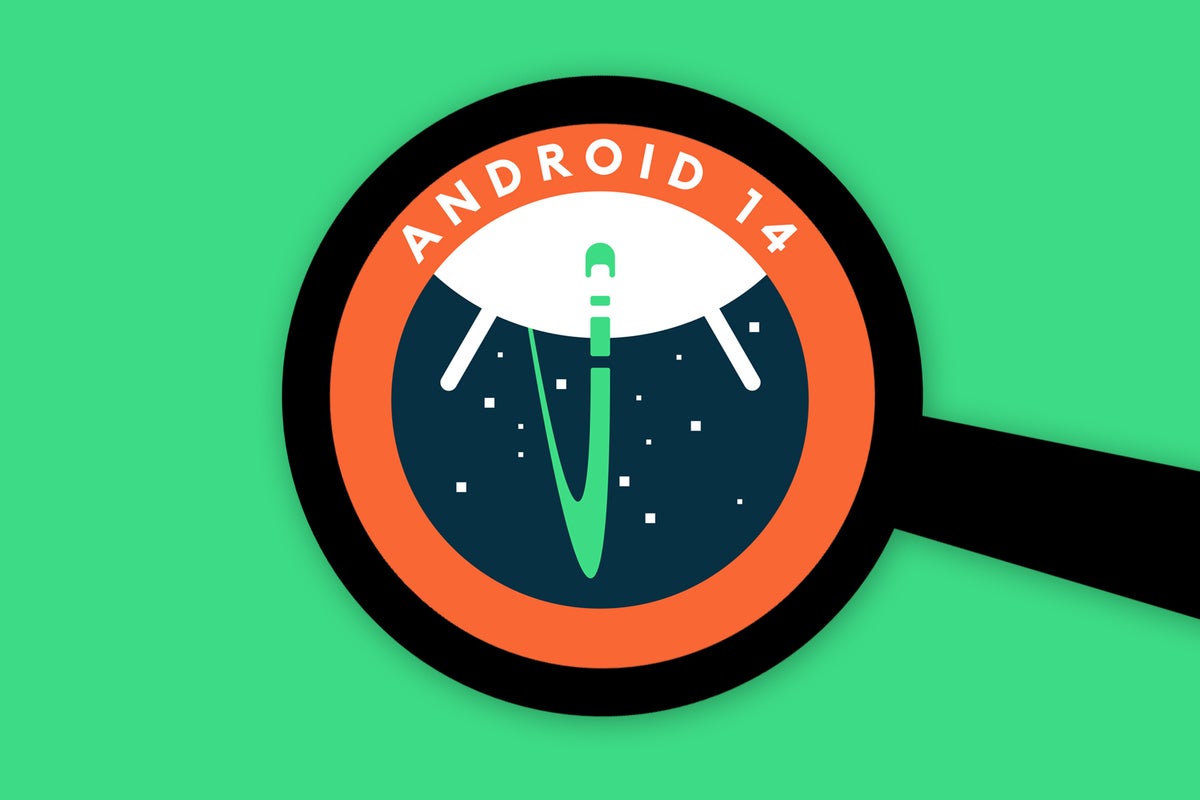With Google's I/O announcement expo now firmly in the rearview mirror, it's time for us to enter the inevitable next phase of any tech-tinted revelation — and that's the careful contemplation of everything we've just experienced.
It's my favorite phase of all, personally, as it lets us really dive in and analyze everything with a fine-toothed comb to uncover all the subtle significance that isn't always apparent on the surface.
And this year, my goodness, is there some splendid stuff to pore over.
Specific to the realm of Android, the sharp-eyed gumshoes over at 9to5Google noticed that this year's under-development new Android version, Android 14, was mentioned by name only one time during the entire 2,000-hour Google I/O keynote.
All right — so it wasn't really 2,000 hours (even if it did feel like it at times). But the keynote was two hours and five minutes, and it included plenty of talk about Android itself. A new Android version is typically a major focus of every I/O event. And somehow, Google made it 125 minutes with only one specific callout of this year's latest and greatest Android offering.
[Get fresh insight in your inbox with my Android Intelligence newsletter. Three things to know and try every Friday!]
It sure seems strange on the surface, wouldn't ya say? But remember: This moment is all about going beyond the surface and seeking out the deeper meaning of Google's actions. And you'd better believe there's some serious significance to be sussed out in this situation.
Google's invisible Android pivot
I won't keep you waiting: Google appears to have very much avoided focusing on Android 14 as a deliberate and tactical strategy — not because it's inching away from Android as an entity but because it wants to place less emphasis on each new Android version as the measure of evolution across the platform.
It's a fascinating shift and one that anyone who's been reading this column for long knows has been building up for years. In fact, we've been talking about it in these quarters for well over a decade now.
In case you haven't been following along — or maybe just don't think about this stuff 24/7, like certain unbalanced and deeply disturbed individuals (insert awkward eye-darting here) — what I'm hinting at is the way Google's been working to pull more and more pieces out of the actual Android operating system and treat 'em as standalone elements instead.
Since 2010, we've been watching Google go at this without any formal announcement or pointing out of its piecemeal pivot. But it's one of the most consequential changes the operating system has ever experienced, and it's something that affects all of us who use Android-associated gadgets.
Plain and simple, a massive array of elements that'd traditionally be considered system components are now technically apps — individual items in the Play Store that are still core parts of any phone's foundation but are now able to get updated numerous times a month in a way that reaches all devices instantly.
It's not something an average phone owner is even aware of, and that's kinda the point. But it has an immeasurable effect on the overall experience of owning an Android-oriented apparatus.
In fact, it even gives those of us on the Android side of the mobile-tech spectrum an important advantage over our iPhone-carrying comrades, despite the popular narrative to the contrary.
Think about it: In the span of a few months, we see a level of significant system-level updates across Android that'd amount to a full major new OS version on iOS — with hefty advancements for everything from our default email, messaging, note-taking, web browsing, and photo storing apps to meaningful improvements aimed at under-the-hood elements responsible for our phones' privacy, security, and performance.
As a certain astute Android-obsessed writer put it last month:
Google's approach actually presents a pretty significant practical advantage, since the updates to all these pieces often land multiple times a month instead of being collected into annual clusters — but with the way bigger OS updates command the most attention, it also presents a very real problem around perception. ... Google doesn't do much to emphasize the fact that we get these sorts of updates constantly on Android while iPhone owners get 'em only once or twice a year. When you stop and think about it, it's really no surprise that so few people see the forest for the trees and realize how it all adds up.
This same writer (who, by the by, is both exceptionally charming and extraordinarily humble) has been bangin' this drum for eons now. And finally, with its 2023 Google I/O gala, Google is for the first time starting to share that rhythm and adjust the way it's talking about Android.
Here it is plain as day, confirmed in a conversation between an Android executive and a reporter from The Verge:
Sameer Samat, VP of Android ecosystem ... said that as Google has implemented ways for Android devices to receive updates outside of a once-a-year platform upgrade, like Play System and app updates, it’s become necessary to frame things a little differently. "So this year, we thought it’s important to show people what’s new in Android from a user experience standpoint, regardless of the OS version. While some features that we announced will launch with Android 14, many will arrive in people’s hands through these continuous updates," he says.
Well, goodness gracious. How 'bout them apples?!
But hold the phone — 'cause there are two sides to every story. And this one is certainly no exception.
One platform, two stories
First things first: Google's Android messaging shift is a powerful and important pivot after years of Android taking a beating for its less-than-exceptional across-the-board performance with operating system update rollouts.
You know the deal on that front, right? Outside of Google itself, with its self-made Pixel products, most Android device-makers do an embarrassingly poor job of keeping their products up to date and sending out software updates in a reasonably timely manner — to the point where it's become impossible to recommend anyone buy any Android products made by certain particularly prominent offenders.
But here's the problem: While the operating system updates on Android absolutely aren't the entire story anymore or anywhere near as all-encompassing as they once were, they are still important — in ways that go beyond the fancy new features and interface improvements we see on the surface.
With Android 14, for instance, the software introduces a new privacy requirement that plainly shows you if and how an app shares location data with any third parties anytime a location permission is requested. It includes a new feature for better protecting your phone's PIN, too, as well as a more nuanced system for granting apps access to media files stored on your device.
These sorts of system-level enhancements to privacy, security, and performance are common parts of Android operating system updates, even if they aren't the parts that tend to get the most attention. And for all of Google's admirable efforts at pulling pieces out of the operating system and updating 'em in an a la carte manner through the Play Store, certain foundational elements can still be handled only as part of the formal OS layer.
So ultimately, there are two sides to this shift: an awareness of what Google's doing and why it's a good, if overdue, change in focus — and a remaining awareness of why it still doesn't address everything and why it's important to pick an Android device-maker who provides the level of post-sales software support you or your business deserve to have.
More than anything, though, perspective matters. And this shift in messaging goes a long way in better conveying the current state of Android and how updates are actually handled.
Now let's see if Google manages to keep it up and make sure everyone — including the kind of average Homo sapiens who wouldn't watch an event like Google I/O in the first place — remains aware of what's happening.
Want even more Googley knowledge? Sign up for my weekly newsletter to get next-level tips and insight delivered directly to your inbox.




















































































